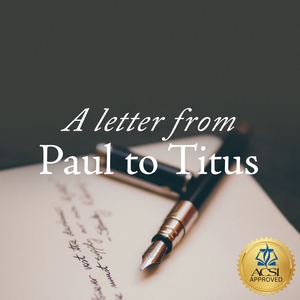I've been told that the Old Testament prophecy of the virgin birth is wrong because of a mistranslation of the Hebrew word for woman. Is this true?
Unfortunately, the Church has seen a rise in teaching that manipulates the meaning of the Greek and Hebrew of the Bible, usually in an effort to support false doctrine. This is one such example.
The text of Isaiah says:
Is. 7:14 “Therefore the Lord Himself will give you a sign: Behold, a virgin will be with child and bear a son, and she will call His name Immanuel.
In this well-known verse, Isaiah foretold that the Messiah would come by way of a virgin birth. The Hebrew word translated as virgin in that verse is almah, which is the customary Hebrew word for an unmarried (hence, virginal) young woman. The Hebrew word for a married woman is ishah, a different word. So Hebrew makes a clear distinction between a virginal woman (almah) and a married woman (ishah).
Therefore, any claim that the Hebrew word for virgin in Isaiah 7:14 is translated wrongly because it means woman is misleading. That Hebrew word means an unmarried woman, which implies a virgin.
Secondly, the context of this passage support an interpretation of "virgin" and not "young woman." The Lord intended to give Ahaz a distinct and meaningful sign, according to Isaiah 7:11, and that sign would be a virgin bearing a child. If the Lord merely intended to provide a young woman bearing a child, this would not be a distinct and meaningful sign since a young woman bearing a child is a common occurrence. There is nothing unique about it, so it could not be recognized as a sign from God. On the other hand, a virgin giving birth is very unique and certainly a sign from God. So the only sensible interpretation of the verse requires the word be understood as "virgin.".
Finally, there is historical evidence to support the translation of "virgin.". In the Greek translation of the Old Testament (called the Septuagint), seventy Jewish rabbis translated the Hebrew word "almah" in Isaiah 7:14 into the Greek word parthenos which means "virgin" not "young woman." This gives further confirmation that the present translation is accurate.
Therefore, those who suggest that the word should be translated as "young woman" are either under the influence of false teaching or are consciously seeking to distort the truth of Scripture to undermine the Gospel. In either case, you should avoid such people:
1Tim. 6:20 O Timothy, guard what has been entrusted to you, avoiding worldly and empty chatter and the opposing arguments of what is falsely called “knowledge” —
1Tim. 6:21 which some have professed and thus gone astray from the faith. Grace be with you.
2Tim. 2:14 Remind them of these things, and solemnly charge them in the presence of God not to wrangle about words, which is useless and leads to the ruin of the hearers.
2Tim. 2:15 Be diligent to present yourself approved to God as a workman who does not need to be ashamed, accurately handling the word of truth.
2Tim. 2:16 But avoid worldly and empty chatter, for it will lead to further ungodliness,
Titus 3:9 But avoid foolish controversies and genealogies and strife and disputes about the Law, for they are unprofitable and worthless.
Scripture quotations taken from the (NASB®) New American Standard Bible®, Copyright © 1995, 2020 by The Lockman Foundation. Used by permission. All rights reserved. www.lockman.org






